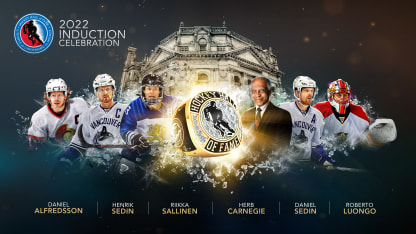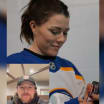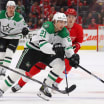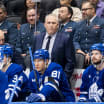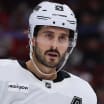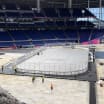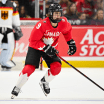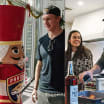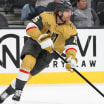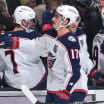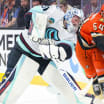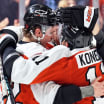DANIEL ALFREDSSON: Saluting the face of the Senators
Daniel Alfredsson remembered to bring his speech.
That's a good thing, because his memory hasn't always been great, as he admitted while recalling his first NHL training camp with the Ottawa Senators in Arnprior, Ontario, in 1995.
"I was super excited," he said. "And nervous, really nervous."
How nervous?
"Probably a bit too excited, I guess. Because the first day of practice, I realized I'd left my skates in Sweden."
He eventually found skates to use. And they propelled him to the Hall of Fame, a journey that made him the face of the Senators franchise to this day.
The love affair between Ottawa and Alfredsson remains strong. As he took a pause in his speech, chants of "Alfie, Alfie" could be heard inside the Meridian Hall Theatre.
"I want to thank Ottawa," he said. "From the first day I arrived until now, your support has been amazing. It has meant so much for me and my family. And it still gives me goosebumps to go into that arena to be reminded of all the great memories we created there.
"I was lucky to play in front of such passionate and knowledgeable fans. And I will never forget the 'Alfie' chants."
As if on cue, those chants started up again in the theater.
Alfredsson played for the Senators for 17 seasons (1995-2013) before finishing his NHL career playing the 2013-14 season with the Detroit Red Wings. His 426 goals, 682 assists and 1,108 points are Senators records, and he won the Calder Trophy voted as NHL rookie of the year in 1996, the King Clancy Trophy for leadership and humanitarian work in 2012, and the Mark Messier Leadership Award in 2013.
But it was always his dream to play for his country. And the fact that he was presented his Hall of Fame plaque by Mats Sundin, his teammate on the gold-medal winning Sweden team at the 2006 Torino Olympics, was a bonus on induction night.
"Thank you, Mats. I can't believe we're friends after all the (Senators-Toronto Maple Leafs) battles we had over the years, but I always looked up to him. He was a star before I even started playing in the Swedish league."
But Alfredsson, class act that he is, saved his most emotional tribute for countryman Borje Salming, the first Swedish player inducted into the Hall, who was diagnosed with ALS this year.
"Thank you, Borje, from all us Swedish players who followed in your footsteps. You're really a true trailblazer. Thank you." -- Mike Zeisberger
